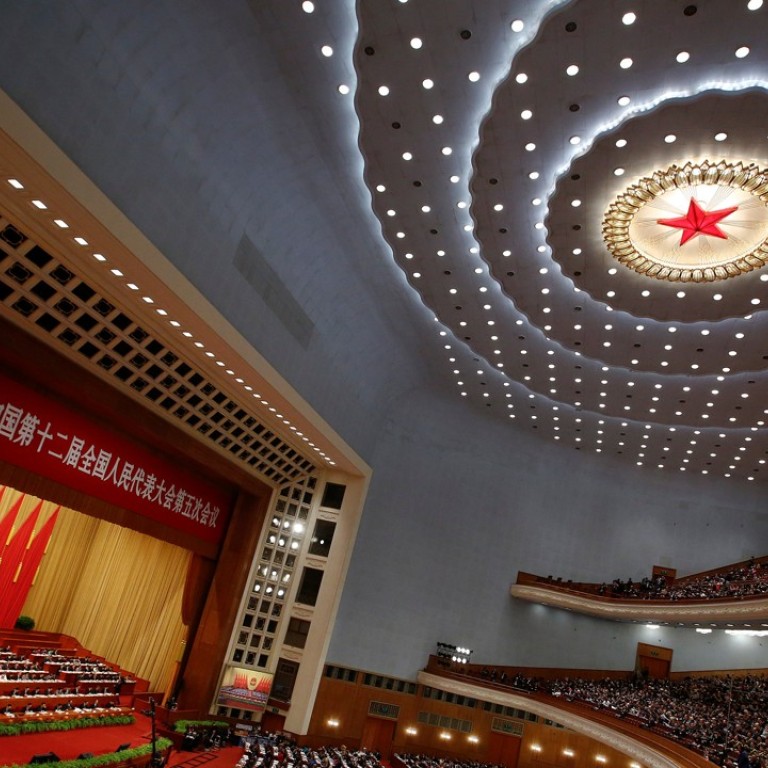
As the Communist Party’s congress looms, politics trump all else in China
A deep power play; a papal court full of intrigue; the Battle of the Princelings; a real life House of Cards, is being played out in front of our eyes.
In the great race for China’s development, it used to not matter whether the mouse was black or white, but whether it caught mice. Now, it seems, it has to be red.
No matter how powerful the business elite, the politicians have absolute control over wealth, jail, or exile.
“Every so often, they need to rein things in, and the people who get hit are the politically incautious,” said Arthur Kroeber of Gavekal Dragonomics.
The State Council, China’s cabinet, has tightened the rules on overseas investments to restrict last year’s big outflows of reserves, but those flows were quickly reversed, and the reason now seems to be to reduce the systemic financial risk posed by conglomerates binging on overseas acquisitions funded by oceans of cash.
Shadow finance has provided rivers of money raised by state-owned companies and wealth management banks. Investment bankers have inflated assets for use as collateral for offshore financing, as described by the excellent Shirley Yam in these pages. “Oh what a tangled web we weave, when first we practise to deceive,” as Sir Walter Scott wrote.
Trophy or “irrational” overseas investments include real estate, hotels and entertainment, cinemas, movie studios, gambling, casinos, even the sex industry, and of course football clubs. The prices are high, and the rates of return dubious.
The government wants to encourage “capable enterprises” to help the command economy as a whole, like agriculture and technology – oh, and promote the Belt & Road investments in Middle Asian dirt.
Debt laden conglomerates rise quickly and fall faster all over the world and throughout history. The South Sea Company was founded in 1711 and collapsed in 1720; Carrian appeared publically in Hong Kong in 1980 and was gone by 1983. BCCI born 1972, died 1991. These investment stars burned bright for a short time but soon plunged. But our conglomerates are not like that… No Sir!
China’s private mega conglomerates Anbang, Dalian Wanda, Fosun, and HNA Group made up a fifth of last year’s record US$220 billion in overseas investments.
Anbang, founded by car salesman Wu Xiaohui in 2004, owns billions of dollars in assets including the Waldorf Astoria Hotel in New York and Fidelity & Guaranty Life in Des Moines, Iowa. Recent failures to acquire hotel group Starwood and a Manhattan office tower owned indirectly by Jared Kushner have raised doubts.
Dalian Wanda calls itself “one of the first shareholding companies in the PRC,” founded in 1988 by Wang Jianlin and now boasts signature shopping centres, cinemas, commercial property, luxury hotels, culture, Internet, finance, tourism, department stores, and part of Athletico Madrid.
Fosun International’s Hong Kong listing in 2007 has helped it own brands like Club Med, Thomas Cook, Folli Follie, Roc Oil and the Wolverhampton Wanderers (last recalled for its performances in the sixties). Chairman Guo Guangchang worryingly cites investor Warren Buffett as an inspiration.
Guo disappeared briefly in 2015 “assisting in certain investigations.” He wrote a letter last month backing the government. “If we don’t take some measures, foreigners will take us as ‘dumb people with a lot of money.”
Less fortunate is Anbang’s Wu, who disappeared from public view in June, prompting his company to declare that he’s indisposed to perform his duties.
The biggest mystery is former airline executive Chen Feng’s HNA Group, which appears almost untouched by politics or commercial pressures, despite the difficulties an old hand like Cathay Pacific is having with airline market forces.
HNA is one of the world’s biggest baggage handlers and airline caterers, with interests in several airlines, Carlson Hotels (Radisson), Deutsche Bank, Hilton, TIP, and London’s International Currency Exchange. This year it bust property price records in New York and Hong Kong, spending about US$6 billion in the process.
Was China’s clampdown a result of the big guys just disobeying instructions? Or is the issue of systemic risk becoming a real threat? Or is the anti-corruption drive netting the big tigers? Or could it just be the visible tip of a juicy mix of high business and high politics?
When financier-fixer Xiao Jianhua was escorted from Hong Kong by mainland agents in January, the well connected fugitive businessman Guo Wengui was spooked into making unsubstantiated accusations of corruption between China’s political and business elite from the safety of his New York hideout. But nothing is going to spoil the next two months.
The leaders of the next five years will be announced at the 19th Plenum of the National Congress of the Communist Party in autumn. A deep power play; a papal court full of intrigue; the Battle of the Princelings; a real life House of Cards, is being played out in front of our very eyes.
Richard Harris (www.portshelter.com) is a veteran investment manager, banker, writer and broadcaster – and financial expert witness.

